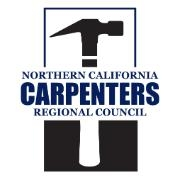Two years ago, Factory_OS opened up with 60 employees in an abandoned World War II shipbuilding facility on the abandoned Mare Island naval base in Vallejo, a start-up with the unique idea of reducing residential construction costs by building homes on an indoor assembly line “Modular had a bad reputation,” says Larry Pace, chief operating officer at Factory_OS.
“It was synonymous with cheap.” But Pace remembers that he and his business partner, Rick Holliday “had done a lot of thinking about it, a lot of work, and we concluded that with a factory environment, we could reduce construction costs and produce a quality product that working people could afford.”
It all took place in the eye of what UC Berkeley housing expert Carol Galante calls “a perfect storm, particularly in these job-rich communities, where we have incredible pressure of population growth. We just don’t have enough places for people to live, and the cost of producing new housing is extraordinary.” Pace and Holliday, both of them veterans of the Bay Area construction industry, took the high road.
“The Carpenters were with us from the start,” Pace says, “even before our first hire.
They helped us recruiting our workforce, and they have helped us politically in getting projects approved. Together, we proved that there was no labor shortage—just an opportunity shortage. I can’t begin to tell you how proud we are of that relationship.”
Factory_OS employees, members of Local 180, agree, appreciating the Carpenter industrial contract, with health, retirement, holidays, vacation and other benefits.
“It’s also just a good environment,” says framer Michael Wood, who gave his daughter his own painting company to come to work at Factory_OS. “They care about the people,” he adds, citing the support for workers trying to earn their GED, and other extras. “They treat us like family.”
Finishing work on a ceiling, Matthew Johnson, a former Laborer, promises, “This is my career. I love coming to work, I wake up Sunday morning and I can’t wait for Monday. It’s good people, good training and plenty of room to grow.”
Aside from the Carpenters, Autodesk is another key partner, providing software and engineering support. “It’s all about lowering our costs,” Pace says.
It’s all about lowering costs. With the Factory_OS operating system, including some cutting-edge programs and platforms from Autodesk, “we can track every unit in real time, where it is, what it’s costing,” says Jordan Easterling, Factory_OS vice president for technology. “We can also track our inventory. We can meet with developers to highlight all the different ways we can configure a project, and what it will cost. We’re working with our partners—the Carpenters Union, developers, design partners and others—to ultimately lower the cost of housing.
People are in the street because of the high cost.” Easterling notes this work is actually larger than just one employer:
“We’re trying to train the industry. It’s all about lowering the cost of housing. People are in the street because of the high cost.”
Today, 1,000 units later, Factory_OS, with 300 employees, is getting ready to hire another 150 to work in a second Mare Island facility, and working with Southern California Carpenters to open up that market next year. The bottom line: 40 percent faster, 20 percent less expensive than onsite construction.
The first Factory_OS project, a 110-unit housing development called The Union went up in 10 days. Typically, a similar five-story building would take a year to construct, Holliday says.
Other projects, either completed or in the works, include:
• Truckee Artists’ Lofts, in that Lake Tahoe town, with 76 units, all of them below market rate;
• 833 Bryant Street, in San Francisco, with 146 micro studios for people currently experiencing homelessness;
• Maceo May Apartments on Treasure Island, providing 106 residential units geared to veterans, with construction beginning in August;
• Mayfair Apartments in El Cerrito, providing 156 residential units;
• The West Oakland Phoenix project, a 101-unit apartment structure for the formerly homeless, with full wrap-around social services, has cleared the Oakland Planning Commission.
In the words of company Vice President Easterling, “We’re challenging the industry to move toward greater transparency, efficiency—and making homes affordable to working families.”
On the factory floor, working on electrical layout, Holly Perez, whose two sons also work for Factory_OS, says, “It’s all about learning,” whether it’s electricity or any other phase of construction. “There’s just
tremendous opportunity here.”
